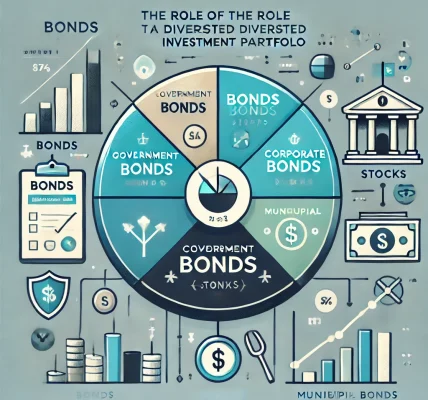Investing is one of the most effective ways to grow wealth, but selecting the right investment platform is crucial to achieving your financial goals. With so many options available, choosing a platform that aligns with your investment strategy, experience level, and financial objectives is essential.
In this guide, we will break down the factors to consider when choosing an investment platform and provide insights into the best options available.
Why Choosing the Right Investment Platform Matters?
The investment platform you choose will impact your overall investment experience, potential returns, and risk management. A well-suited platform provides:
- Low fees and commissions to maximize returns.
- User-friendly interfaces for easy portfolio management.
- Diverse investment options to align with your goals.
- Reliable customer support for troubleshooting.
- Security and regulatory compliance to protect your funds.
By carefully evaluating these factors, you can ensure that your investment journey is smooth and profitable.
Factors to Consider When Choosing an Investment Platform
1. Identify Your Investment Goals
Before selecting a platform, you must define your financial objectives. Ask yourself:
- Are you investing for retirement, short-term gains, or passive income?
- Do you prefer high-risk, high-return strategies or stable, long-term growth?
- Are you interested in stocks, ETFs, mutual funds, real estate, or cryptocurrency?
Your answers will guide you to a platform that aligns with your specific needs.
2. Understand the Fee Structure
Investment fees can significantly impact your returns. Compare platforms based on:
- Trading fees: Some platforms charge commissions on trades, while others offer commission-free trading.
- Account maintenance fees: Some platforms charge monthly or annual fees for account management.
- Expense ratios: For mutual funds and ETFs, the management fee affects overall returns.
- Withdrawal and deposit fees: Some platforms impose charges for moving funds in and out.
Example: Robinhood offers commission-free stock and ETF trading, making it ideal for cost-conscious investors, while Fidelity provides zero-fee mutual funds.
3. Evaluate Investment Options
Different platforms offer varying investment choices. Ensure the platform provides:
- Stocks and ETFs for diversified portfolios.
- Mutual funds and bonds for conservative investors.
- Cryptocurrency for those interested in digital assets.
- Options trading for advanced investors.
- Fractional shares to allow small investments in high-value stocks.
Example: M1 Finance offers automated investing and fractional shares, making it perfect for hands-off investors.
4. Check User Experience and Accessibility
A user-friendly platform ensures a seamless investment experience. Consider:
- Mobile app availability for on-the-go trading.
- Intuitive design for easy navigation.
- Educational resources for beginner investors.
- Demo accounts to practice investing without real money.
Example: Webull and TD Ameritrade offer advanced charting tools for experienced traders, while Acorns automates investments for beginners.
5. Assess Security and Regulatory Compliance
Security should be a top priority. Check if the platform:
- Is regulated by financial authorities like SEC, FINRA, or FCA.
- Uses encryption and two-factor authentication (2FA) for data protection.
- Provides insurance coverage (such as SIPC insurance) for investor funds.
Example: Charles Schwab and Fidelity are well-regulated platforms with strong security features.
6. Compare Customer Support and Reviews
Reliable customer support is crucial, especially during market volatility. Evaluate:
- Live chat, phone, and email support availability.
- Response time and helpfulness based on user reviews.
- Community forums for peer discussions and support.
Example: Vanguard and Schwab are known for their excellent customer service, while some commission-free apps may have limited support options.
Best Investment Platforms Based on Investor Needs
Here are some top investment platforms based on different goals:
For Beginners: Robinhood & Acorns
- Commission-free stock and ETF trading.
- Simple, user-friendly interface.
- Automated investing with spare change (Acorns).
For Long-Term Investors: Fidelity & Vanguard
- Low-cost mutual funds and ETFs.
- Strong educational resources.
- No account minimums.
For Active Traders: Webull & TD Ameritrade
- Advanced research and charting tools.
- Zero commissions on stock and ETF trades.
- Extended trading hours.
For Automated Investing: M1 Finance & Betterment
- Robo-advisors for hands-off investing.
- Fractional shares for diversified portfolios.
- Customizable investment “pies” (M1 Finance).
For Cryptocurrency Enthusiasts: Coinbase & Binance
- Access to a wide range of digital assets.
- Advanced trading tools for crypto investors.
- Secure storage and staking options.
Final Thoughts: Making the Right Choice
Choosing the right investment platform requires careful consideration of your financial goals, risk tolerance, and trading preferences. By evaluating fees, investment options, security measures, and customer support, you can find a platform that aligns with your needs.
Key Takeaways:
✔ Define your investment goals before choosing a platform. ✔ Compare fees and commissions to maximize returns. ✔ Ensure the platform offers your preferred investment options. ✔ Check for strong security features and regulatory compliance. ✔ Choose a user-friendly platform with reliable customer support.
Investing is a journey, and selecting the right platform is the first step toward financial success. Make an informed choice and start growing your wealth today! 🚀
Frequently Asked Questions (FAQs)
1. What is the best investment platform for beginners?
Robinhood and Acorns are great options due to their ease of use and commission-free trading.
2. Are investment platforms safe?
Most reputable platforms are regulated and have security measures in place, such as two-factor authentication and encryption.
3. Can I invest with a small amount of money?
Yes! Many platforms, like M1 Finance and Robinhood, allow fractional investing with as little as $1.
4. What platform is best for long-term investing?
Fidelity and Vanguard are ideal for long-term investors due to their low-cost mutual funds and ETFs.
5. Are all investment platforms commission-free?
No, while many platforms offer commission-free stock and ETF trading, some still charge fees for mutual funds, bonds, or advisory services.




